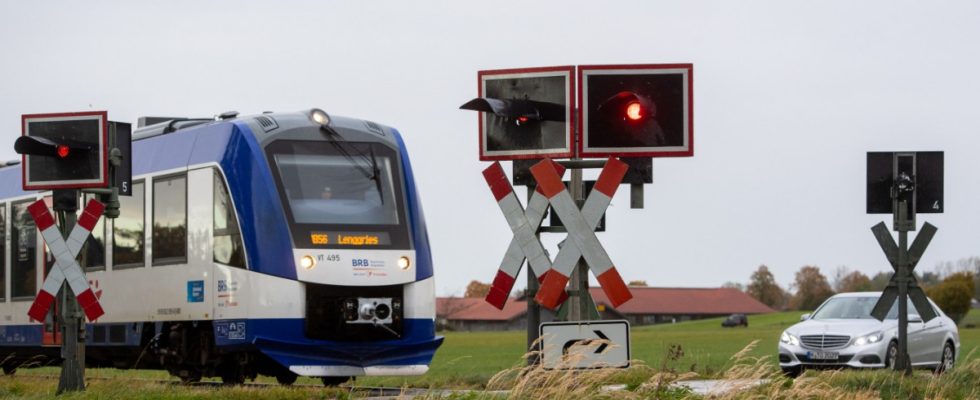Diesel operation in Bavarian regional transport is expected to end by 2040. Transport Minister Christian Bernreiter (CSU) announced this on Tuesday with reference to the new rail electromobility strategy in Munich. In order to achieve the goal, the electrification of additional railway lines and the use of trains with climate-friendly drives are planned. The new concept contains “a bundle of measures to make rail transport more climate-friendly”.
At present, a good half of the local rail passenger transport lines in Bavaria still run on diesel engines, it said. In order to change this, numerous routes will have to be electrified in the coming years.
The current federal transport infrastructure plan in Bavaria envisages the electrification of nationally important routes with a total length of 680 kilometers. This would include the Regensburg-Hof axis and the so-called ABS 38 from Munich via Mühldorf to Freilassing and Burghausen. Unfortunately, the projects financed by the federal government are making slow progress; the ministry complained that a planning freeze was even imposed on the Franconia-Saxony mainline from Nuremberg to Hof and Schirnding.
Bernreiter also criticized the fact that in order to apply for funding for electrification, complete planning and proof of an adequate benefit-cost ratio are always required: “It makes no sense to keep re-examining the economic benefits of every single electrification.” Nevertheless, the Free State made advance payments and commissioned planning for the electrification of routes with a total length of around 210 km. These included the routes in the Bavarian Oberland, the Schnaittachtalbahn in the Nuremberg region and the Illertalbahn from Ulm to Kempten including the branch line to Weißenhorn.
Planning orders for the electrification of a further 115 kilometers should follow this year. This affects the Aschaffenburg-Miltenberg, Bayreuth-Schnabelwaid, Kempten-Oberstdorf routes and the Brenzbahn Ulm-Aalen, which runs in sections across Bavarian territory. Electrification is also being investigated for various routes in the greater Nuremberg area as part of the “Nuremberg S-Bahn expansion program”.
For routes without electrification prospects, the state government is relying on the use of battery and hydrogen trains, which have now reached market maturity for the German rail network. A 30-month test operation with the Mireo Plus H hydrogen train will start in autumn 2024 on the Augsburg-Füssen and Augsburg-Peißenberg routes. Hydrogen trains would be used between Mühldorf and Burghausen from the end of 2026. Battery-powered trains will operate on the Bayerwald network routes around Zwiesel from 2034.
For other networks in the Allgäu, Upper Franconia and the greater Nuremberg area, it is being examined how battery-powered trains could be used there. According to the ministry, the use of the climate-friendly fuel HVO-100, which is obtained from hydrogenated vegetable oil, is being tested as an interim solution for the remaining service life of vehicles with combustion engines. The one-year test operation will run until summer 2024 and will be scientifically supported by the Technical University of Berlin.

